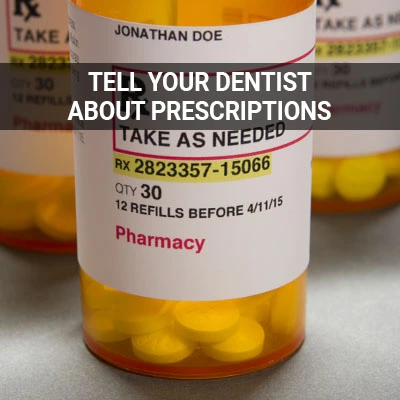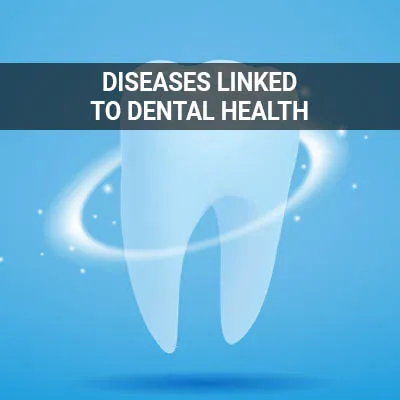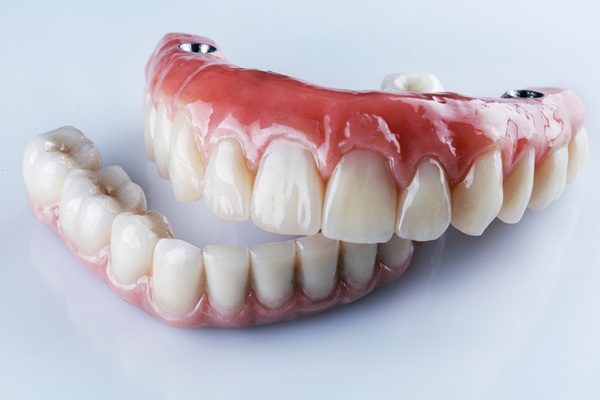Conditions Linked to Dental Health Marietta, GA
The emergence of complete health dentistry has seen an astounding advancement in the dental industry as researchers find a connection between oral and general health. The mouth is the leading entryway to the body and is known as the window to a person's general health. A complete health dentist understands the connection between oral and overall health, running their practice on the application of modern dentistry with a focus on systemic relief.
People who take proper hygiene measures to ensure their oral health is up to par may have fewer general health problems. Although many conditions, illnesses, and diseases are genetic, it is possible to combat others through proper oral hygiene. Understanding and applying the oral-systemic link can profoundly enhance a person's health and well-being.
Complete health dentistry is available at Happy Dental and Orthodontics in Marietta and the surrounding area. Our staff can help you learn more about the oral-general health connection. Call us at (770) 200-4034 to schedule a consultation appointment today.
Causes of Dental Issues
We assess a patient's medical history and examine genetic and lifestyle factors that may affect their oral health. After a full evaluation, the provider develops a treatment plan that focuses on the patient's dental risks and concerns. Some genetic conditions that can affect the oral cavity include but are not limited to anodontia (the complete absence of teeth), hypodontia (or partial anodontia), amelogenesis imperfecta (defective or missing enamel), and dentinogenesis imperfecta (tooth discoloration or apparent translucency).
Habitual causes of dental issues include but are not limited to nail-biting (which can chip teeth and impact the jaw), teeth grinding and jaw clenching (which can cause teeth to chip or crack), overbrushing (which can damage the teeth and irritate the gums), and chewing ice (which can cause teeth or fillings to break). To break a nail-biting habit, patients may want to try bitter-tasting nail polishes or stress reduction techniques. Relaxation and mindfulness techniques may also help with teeth grinding and jaw clenching while brushing with a soft-bristled toothbrush can help prevent over-brushing. Patients tempted to chew ice may want to consider drinking chilled beverages without ice or with a straw.
“We assess a patient’s medical history and examine genetic and lifestyle factors that may affect their oral health.”
Cavities and Sensitive Teeth
Cavities develop when decay penetrates the top layer of a tooth, known as the enamel. Without treatment, decay can spread and trigger a soft-tissue infection. Decay might even spread to the jawbone. In addition, patients with untreated cavities may develop a tooth abscess. This condition can progress into a life-threatening infection.
Patients with chronic health conditions may be at a higher risk of cavities. Our team can determine how often each patient needs exams and X-rays. Routine screenings can help detect cavities in their early stages. We can also provide advice about tooth pain and sensitivity.
“… patients with untreated cavities may develop a tooth abscess.”
Cracked and Broken Teeth
Patients sometimes develop cracked or broken teeth after dental trauma. Car accidents or sports injuries can damage the patient's mouth. Without treatment, patients may lose a tooth. Broken teeth are also vulnerable to infection.
Our team can repair broken teeth. They clean and seal the tooth to prevent infection. Furthermore, restorative treatments can save a damaged tooth and prevent tooth loss. Keep in mind that tooth loss can increase a patient's risk of future dental problems. For example, patients who have lost a tooth may be more likely to develop jawbone loss or bite misalignment. Prompt dental care can help patients avoid these complications.
“Broken teeth are also vulnerable to infection.”
Check out what others are saying about our dental services on Yelp: Conditions Linked to Dental Health in Marietta, GA
Oral Cancers
Oral cavity and oropharyngeal cancer most commonly result from behavioral factors such as smoking, excessive drinking, and poor nutrition. People with a weak immune system are at the highest risk of developing oral cancers, as the body is unable to fight bacteria and infection as effectively. Human papillomavirus (HPV) infections can also cause oral cancers because of their effect on the mouth and throat.
Oral hygiene plays a vital role in reducing the risk of oral cancers along with preventing oral and general health concerns. The American Cancer Society found that "the overall health of the mouth, teeth, and gums may impact oral cavity and oropharyngeal cancer risk because of changes in the normal bacteria in the mouth." Poor oral hygiene may be linked to these cancers because of bacterial infections, tooth decay, and gum disease.
“Oral hygiene plays an important role in both reducing risk of oral cancers and preventing oral and general health concerns.”
Questions Answered on This Page
Q. What lifestyle factors can affect my oral health?
Q. How do cavities affect my oral health?
Q. What are the health risks associated with broken teeth?
People Also Ask
Q. What preexisting conditions are linked to oral health?
Q. How can I find out if my employer's plan covers dental treatments?
Q. How does medication for diabetes impact oral hygiene?
Gum Disease Link to General Health
Gum disease is the leading cause of tooth decay, tooth loss, and, in severe cases, periodontal disease. The CDC found that "Certain chronic conditions increase one's risk for periodontal disease including diabetes, a weakened immune system, poor oral hygiene, and heredity." Gum and periodontal disease, characterized by sensitive and inflamed gums, are linked to decay and can result in tooth and bone loss when left untreated.
Diabetes is another common condition that both affects and is affected by gum disease. According to the Mayo Clinic, "By reducing the body's resistance to infection, diabetes puts your gums at risk. Gum disease appears to be more frequent and severe among people who have diabetes since people who have gum disease have a harder time controlling their blood sugar levels." Gum and periodontal care can help manage diabetes while maintaining stability in blood sugar can also help mitigate gum and periodontal disease.
Frequently Asked Questions About Conditions Linked to Dental Health
Q. What health conditions can affect your oral health?
A. Several chronic health conditions can cause gum disease. Chronic illness may also increase your risk for tooth decay. Patients may need additional care if they have:
Pregnant patients also need specialized care. For example, pregnancy can increase a person's risk of oral infections and cause gum inflammation.
Q. What are the health risks of poor oral hygiene?
A. Poor oral hygiene may increase your risk of:
Over time, untreated dental problems might cause:
Oral health problems can have a widespread, devastating impact on a person's health. We can help patients improve their oral health and protect against complications.
Q. How can I protect my oral health?
A. Preventive care can combat tooth decay and gum disease. Experts recommend that children and adults brush their teeth twice daily, floss once a day, and rinse the mouth often with plain water. Avoid sugary, sticky foods as they feed decay-causing bacteria and trap plaque against the gumline.
Q. What is the importance of routine dental exams and cleanings?
A. Dental exams help us properly assess a patient's current oral health status and determine the treatments they need. A twice-yearly dental cleaning removes plaque and tartar before decay can set in. Cleanings also offer the dentist an opportunity to check for developing problems. In addition, early cavity treatment may prevent future health issues.
Q. What should I do if I develop tooth pain or gum recession?
A. Report changes in your oral health to a dental provider right away. Tooth pain can be an early warning sign of serious dental problems. The sooner patients receive treatment for these issues, the better their outcomes. We can determine what treatment is right for you.
Dental Terminology
Learn More About Complete Health Dentistry Today
If you are looking for information or advice regarding complete health dentistry, call us at 770-200-4034.
Helpful Related Links
- American Dental Association (ADA). Glossary of Dental Clinical Terms. 2024
About our business and website security
- Happy Dental and Orthodontics was established in 2021.
- We accept the following payment methods: American Express, Cash, Discover, MasterCard, and Visa
- We serve patients from the following counties: Cobb County and Fulton County
- We serve patients from the following cities: Marietta, Smyrna, Sandy Springs, Atlanta, Kennesaw, Roswell, Acworth, East Cobb, Alpharetta and Fair Oaks
- National Provider Identifier Database (1407403652). View NPI Registry Information
- Norton Safe Web. View Details
- Trend Micro Site Safety Center. View Details
Back to top of Conditions Linked to Dental Health










